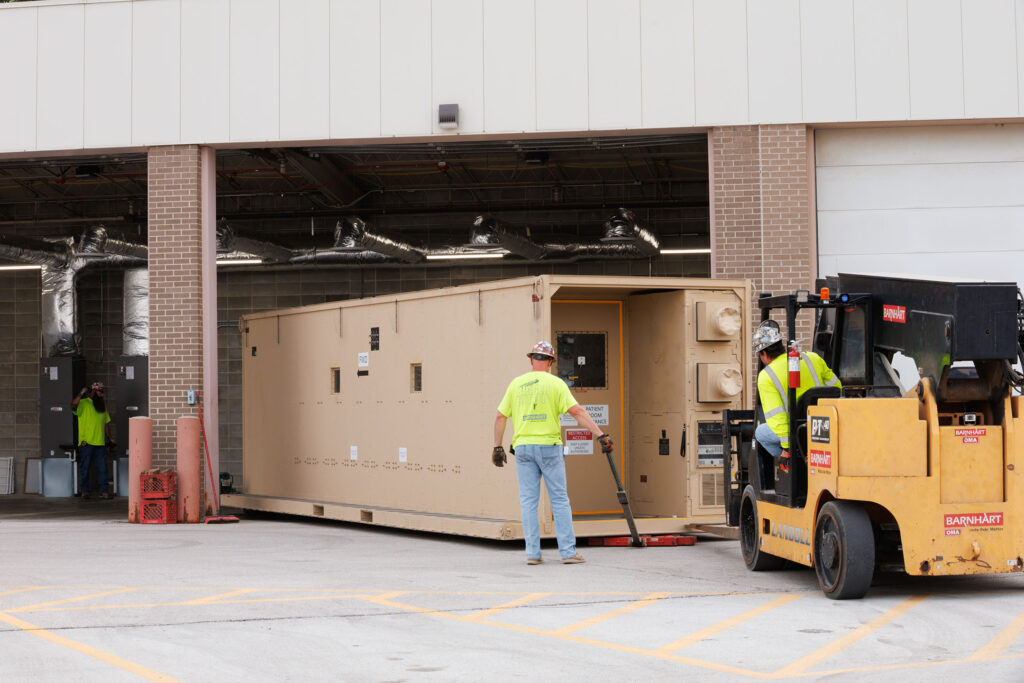UNMC and the C-STARS program accepted delivery in June of another infectious disease military transport device, the Negatively Pressurized Conex Lite.
The device is similar to the Negatively Pressurized Conex that arrived on campus in June 2023, but smaller – about 30 feet long to the original model’s 40 feet, and 13,000 pounds to the original’s 20,000 – and thus more versatile, said Col. Elizabeth Schnaubelt, MD, director of CSTARS Omaha.
“This one is more agile, in that it can go on two of our military aircraft, the C-17 and C-130,” Col. Schnaubelt said. “It’s smaller in size, and the layout is different, so this unit will allow us to work through all of the procedures we would use in a live scenario during transport.”

The Conexes are retrofitted shipping containers redesigned into clinical spaces. The new unit is the latest step in the ongoing successful collaboration between UNMC, the C-STARS program and the U.S. Department of Defense.
“We are proud to work with our military partners to increase the safety of our men and women in uniform,” said Chris Kratochvil, MD, endowed chair at the Global Center for Health Security and vice chancellor for external relations at UNMC. “This new tool will help C-STARS more effectively develop procedures to safely transport high-level-isolation patients on military aircraft.”
UNMC Interim Chancellor H. Dele Davies, MD, congratulated Col. Schnaubelt and her team.
“Dr. Schnaubelt is a skilled physician and leader, and it is inspiring to see our collaboration with C-STARS and the U.S. Department of Defense continue to thrive,” Dr. Davies said. “The C-STARS team is doing critical work, and it is a testament to UNMC that the U.S. Department of Defense has once again chosen Omaha to spearhead the work developing protocols for this new unit.”
